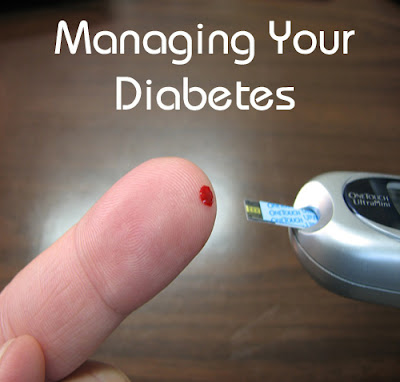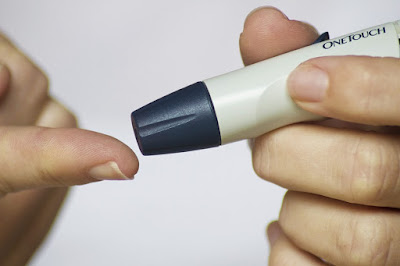Showing posts with label Diabetes. Show all posts
Showing posts with label Diabetes. Show all posts
Meals for diabetics type 2
Meals for diabetics type 2
ORANGE RICE
1 c. rice, uncooked
1 c. water
1 c. orange juice
1 tsp. reduced calorie margarine
Dash of salt
1 tbsp. orange rind, freshly grated
1/2 c. fresh orange sections, seeded
In a 2-quart microwave safe casserole, combine the rice, water, orange juice, margarine and salt. Cover, microwave on High for 5 minutes. Stir in the orange rind. Turn the bowl 1/4 turn. Microwave on High for an additional 10 minutes, turning the bowl after 5 minutes. Do not uncover the bowl. Allow to set covered for an additional 10 minutes or until all of the liquids have been absorbed. Immediately before serving, fluff with a fork, add orange sections and mix gently. Serve with pride. Makes about 6 (100 calories) servings.
Healthy dinner for diabetics type 2
BAKED CHICKEN DINNER
4 oz. chicken
1 egg
4 oz. cooked peas
1/3 c. dry milk
2 tbsp. dehydrated onion flakes
2 tbsp. green peppers, diced
2 tbsp. Worcestershire sauce
1/2 tsp. salt, seasoned
1/2 c. water
2 tbsp. pimento, chopped
Combine all ingredients. Bake at 350 degrees for 45 minutes.
Diabetic Recipes For Breakfast
SUGAR - FREE CRANBERRY RELISH
2 c. cranberries
2 apples
1 c. orange juice
Grind together the cranberries and apples, using a sweet apple. (May also use blender). Add orange juice, chopped nuts and sweetener to taste. Refrigerate several hours before using.
Best recipes for diabetics type 2
Best recipes for diabetics type 2
CHICKEN LIVERS HAWAIIAN
1/4 c. liquid chicken bouillon
1/2 c. chopped celery
1/2 c. chopped onion
1/2 med. green pepper, sliced
12 oz. chicken livers
1 c. pineapple chunks
1 1/4 tsp. brown sugar substitute
1 tsp. salt
1 tbsp. cider vinegar
Bean sprouts
Cook celery, onion, and green pepper in Pam sprayed skillet. Cook over medium- high heat until crisp, about 5 minutes. Add chicken liver and cook 10 minutes. Add chicken liver and cook 10 minutes. Stir frequently. Add pineapple. Dissolve salt, sugar, and vinegar with 1/2 cup water. Add to skillet. Serve on cooked hot bean sprouts.
Don't Be The Disease | Managing Your Diabetes
You never really know what to expect in life. Just when things are seemingly going well, something like diabetes can come along and derail everything. If you have been diagnosed with diabetes, learn how to manage your lifestyle and the disease by reading these tips below and applying them where necessary.
If you need to sweeten your tea or coffee, but you have Diabetes, try using more natural sweeteners like honey or a sweetener and sugar substitute. These sweetener and sugar substitute can be found at many grocery stores today and is a plant extract, which is very sweet. It can even be found in a powdered form which mimics real sugar.
If you're looking for a salty snack but your diabetes is holding you back, look no further than a jar of olives! They're a fruit, tasty, healthy, and fun to eat. You can cut them up and put them in salads, or even on a sandwich! I love to make a homemade submarine sandwich and sprinkle some on top. YUM!
If you want to eat healthier to help overcome your Diabetes, but you just can't stomach fish without some pops of flavor on it, try capers!
They're like olives in their flavor, but smaller and zestier. You can sprinkle them on any type of fish, I like to also add some slices of Spanish onion, and they take the place of sauce.
Birthday parties can be a nightmare for the parents of a diabetic child, but they don't have to be as long as you communicate with the hosts of the party. Let them know as far in the future as possible about your child's illness, and offer to send food with them so they don't have to come up with alternatives themselves. Send enough for everyone at the party and they won't feel like they're different!
To avoid developing a life-threatening infection, avoid going barefoot outdoors. People with diabetes are much more susceptible to developing infections from minor injuries and simply cutting your foot on a piece of glass could become a major ordeal. Instead, try wearing lightweight, waterproof shoes when you're going outside in warm weather.
It is important that you know how to use your insulin pump. Many people do not get the proper amount of insulin because they are not using their pump correctly. If you do not know what you are doing, do not feel ashamed to ask your doctor or another health professional, for help.
Just like you're able to buy generic diabetic prescriptions and stay healthy, generic food items can be just as good as their brand name counterparts. Saving money is important to everyone, especially when you're on a relatively strict diet. If you're going to buy the generic brand, compare the ingredient list and nutrition data to the brand name to make sure you're getting the same quality.
Get educated about your condition. The more information you have about diabetes, the better you are equipped to handle it. By educating yourself more, you can in turn educate others including family members and friends. They may not be sure how to handle diabetes and aren't sure about how they may be able to help you one day.
If you find yourself yawning more frequently than usual at a time of day in which you are ordinarily high-energy, low blood glucose levels may be the culprit. Take your blood sugar measurements to confirm whether or not this is the case; over time you should be able to identify your body's standard responses to changes in glucose levels.
What you've just learned from the tips above is that diabetes can be controlled with the right information and the right amount of effort on your part. Now that you've learned more about the disease and what you can do to control it, the next logical step is to apply the information and formulate a plan of action.
What Causes Diabetes?
Chances are, you know someone with diabetes, or someone in your family has it. But what causes it? How does a person develop the symptoms of diabetes?
There are basically two types of diabetes, Type I and Type II. These differ as to their cause and treatment. Here are some ideas about what causes diabetes.
Type I
Type I diabetes is caused by a malfunctioning pancreas. What causes the pancreas to malfunction differs from case to case. It tends to run in families, but some individuals have developed diabetes in childhood when no one in their family has any history of the disease.In some individuals, their own immune system attacks the pancreas and destroys its cells, thereby rendering it useless. In others with Type I diabetes, an injury or pancreatic surgery destroys the pancreas to the point that it can no longer produce insulin.
Type I diabetes has a different demographic than Type II. Children as young as 2 or as old as 22 can be diagnosed with Type I diabetes - hence the alternate name for Type I diabetes: juvenile diabetes. However, older people can certainly develop Type I diabetes, especially if there is injury to the pancreas.
Type II
Type II diabetes may have some hereditary factors, too, but not to the clear-cut degree that Type I does. In Type II, the body becomes resistant to the insulin that the pancreas is still producing. Or, Type II diabetics have a functioning pancreas but the organ does not produce enough insulin. Older individuals and those who are overweight are considered more at risk for developing Type II diabetes than those with a healthy body weight and lifestyle.What Triggers It?
An auto-immune disorder might trigger Type I diabetes, as the body's immune system can inexplicably attack the pancreas and destroy its cells. There might also be some other way that the pancreas gets damaged, which is not age specific.Type II diabetes may be triggered by unhealthy, sugar-rich diets and a sedentary lifestyle. The pancreas may simply become exhausted trying to keep the blood sugar down in response to the constant influx of sugar from the diet.
Other possibilities for triggers include high blood pressure and stress. While it's not directly proven as a causal factor, individuals with high blood pressure are statistically more likely to develop diabetes than those with normal blood pressure.
Stress as a causal factor has a similarly unproven status, but it is often thought by medical professionals that prolonged, unrelieved stress increases the risk of diabetes. Sometimes the stress is caused by trauma or emotional disturbance, somehow making the individual susceptible to developing diabetes.
Subscribe to:
Posts (Atom)








